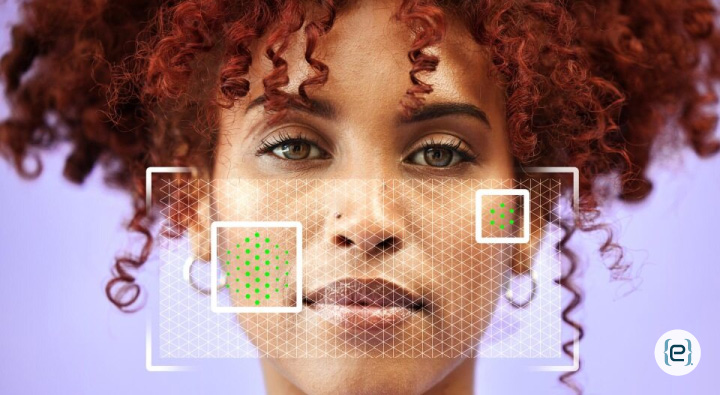Social Media Beauty Filters: The Hidden Cost of Digital Perfection


Beauty filters on social media have become a significant part of how you present yourself online. These digital tools can smooth skin, slim faces, and even change eye color with just a tap. Many young people start using them as early as middle school.
Beauty filters are now so advanced that they can completely transform someone’s appearance in photos and videos. Apps like TikTok, Snapchat, and Instagram offer increasingly realistic filters that blur the line between real and fake. This technology is changing how you see yourself and others.
The widespread use of beauty filters has sparked debate about their impact on self-esteem and body image, especially for young users. While some enjoy playing with filters for fun, others worry about setting unrealistic standards. As filters keep improving, the conversation around their effects on society is likely to continue.
Evolution of Beauty Filters
Beauty filters have come a long way since their early days. They’ve changed how you see yourself online and set new beauty standards.
- The Rise of Filter Technology: Beauty filters first appeared on social media around 2015. Snapchat led the way with fun face-changing effects. Soon, Instagram and other apps joined in. Early filters were simple, adding dog ears or flower crowns.
As tech got better, filters became more realistic. They could smooth skin, slim faces, and change eye color. By 2020, filters could totally transform how someone looked. This led to concerns about body image and self-esteem.
- Filter Trends Through the Years: Filter trends have changed quickly over time. In 2016, the “natural” look was popular. Filters just brightened skin and eyes. By 2018, dramatic changes were in. People wanted bigger lips and sharper cheekbones.
Recently, there’s been pushback against unrealistic filters. Some influencers now post unfiltered photos. Apps like TikTok even label videos that use beauty effects. Still, new filter trends pop up all the time. From “anime eyes” to “perfect teeth,” there’s always a new look to try.
Cultural Impact of Beauty Filters
Beauty filters on social media have changed how you see yourself and others. They affect beauty standards and play a big role in marketing.
- Influence on Beauty Standards: Beauty filters shape what people think is attractive. Many users, especially teens, compare themselves to filtered images. This can hurt self-esteem and body image. Some people even want to look like their filtered selves in real life.
Filters often make skin lighter, eyes bigger, and noses smaller. This promotes a narrow view of beauty. It can make people with different features feel left out.
Some filters change faces to look more Western. This can erase cultural differences in beauty. It may make people feel pressure to look a certain way.
- Filters in Marketing and Advertising: Companies use beauty filters to sell products. They make models and products look perfect in ads. This can trick people about how things really look.
Influencers often use filters in sponsored posts. Viewers may not know the look isn’t real. This can lead to unrealistic hopes about products.
Some brands are pushing back. They show real, unfiltered people in ads. This helps celebrate different types of beauty.
Filters blur the line between real and fake in ads. It’s hard for people to know what’s true. This changes how you see ads and products.
Psychological Effects
Beauty filters on social media can have serious impacts on mental well-being. They shape how you view yourself and others, often in unhealthy ways. These effects go beyond just appearances.
- Body Image and Self-Esteem: Social media filters that alter looks can harm body image and self-esteem. Many users compare themselves to idealized, filtered versions of others online. This can lead to feelings of inadequacy about their real appearance.
Studies show more social media use is linked to poorer body image, especially photo-based activities. Filters make it easy to edit out perceived flaws. But this creates unrealistic standards. People may feel pressure to look “perfect” all the time.
Some develop a warped view of how they really look. They may prefer their filtered self to their real-world appearance. This disconnect can fuel insecurity and even body dysmorphia in some cases.
- Addiction and Mental Health Concerns: Beauty filters can become addictive for some users. People may feel anxious posting unfiltered photos. They might spend too much time editing images. This can cut into other activities and relationships.
Overuse of filters may increase social anxiety. Users could feel uncomfortable in real-life situations where they can’t edit their appearance. Some might avoid in-person meetups entirely.
Constant comparison and filtering can worsen existing mental health issues. It may contribute to depression, anxiety, and low self-worth. Young people seem especially vulnerable to these effects.
Experts suggest taking breaks from social media. They also recommend following diverse accounts with realistic, unfiltered content. This can help create a healthier online experience.
Navigating the Filtered World
Social media filters have changed how you see yourself online. It’s important to know how to use them wisely and keep a healthy view of beauty.
- Critical Media Literacy: Being smart about social media filters means learning to spot edited photos. Look for signs like super smooth skin or eyes that seem too big. Remember that most celebs and influencers use filters and editing.
It helps to follow accounts that show real, unfiltered pics. This can remind you what normal people look like. Try to limit time spent looking at heavily filtered content.
Talk to friends about how filters make you feel. Sharing thoughts can help everyone see things more clearly.
- Balance Between Real and Ideal: Using filters can be fun, but it’s key to keep it real too. Try posting a mix of filtered and unfiltered photos. This shows both sides of yourself.
Set limits on how much you edit pics. Maybe stick to just adjusting lighting or adding cute stickers. Avoid changing your face shape or body.
Remember that your worth isn’t tied to likes or follows. The people who matter most will love you – filter or no filter.
Take breaks from social media now and then. Spend time with friends in person or enjoy hobbies that don’t involve screens.
For more insights into digital well-being and technology use, contact eMazzanti today to learn how we can help you navigate the digital landscape safely.
Recent Posts
Step Up Your Threat Response With Security Copilot
As we move deeper into 2025, you are probably focusing on ways to expand your…
Watch Out for the Cyber Security Menace
As we move deeper into 2025, you are probably focusing on ways to expand your…
The Rise of AI Agents: Simplifying Tasks and Connecting Technologies
Introducing eCare Bot: Your Intelligent IT Support Assistant In today's fast-paced world, the emergence of…
Server Simplified
At eMazzanti Technologies, we recognize that stable, effective, and expandable servers are essential to the seamless operation of enterprises. For this reason, we collaborate with Hewlett Packard Enterprise (HPE) to offer our clients the best server solutions possible, customized to meet their unique requirements. HPE servers provide the performance and flexibility required for small and big businesses to manage data, support apps, and manage workloads with ease. Customers may choose the best HPE servers for their organization with the assistance of our team of specialists. We take the time to comprehend the particular needs of every client, including those related to processing speed, storage capacity, and security features. Whether our clients require a general-purpose ProLiant server or a…
How to Make Your AI Copy Sound Authentic: Writing Like a Human, Not a Machine
AI writing tools have become popular for creating content quickly. But many readers can spot…
Data Analytics for Old-School Business Owners: Turning Dusty Ledgers into Gold Mines
Data analytics is changing the game for businesses of all types, including old-school industries that…


